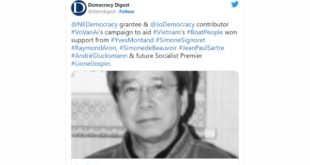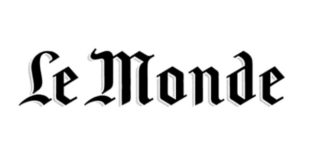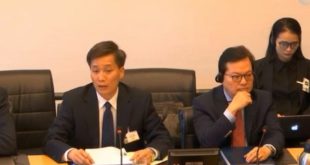HANOI, Jul 2, 2006 (AFP) – A new decree has sparked debate about how Vietnam’s communist government plans to manage media outlets which are already under strong state control but have recently shown stirrings of independence.
The decree entitled “Administrative Sanctions on Information and Culture Activities” has came into force and, according to the authorities, will codify provisions scattered among several existing laws.
It “creates the necessary legal basis contributing to increasing state management in the area of culture and information,” said the state Vietnam News Agency (VNA).
“The enactment of the decree is not aimed at limiting press and information operations but is aimed at ensuring that these operations are performed in accordance with the law,” said Deputy Culture Minister Do Qui Doan as quoted by the agency.
The text obtained by AFP does include articles defending the media. Death threats against journalists are now punishable by a fine of up to 10 million dong (625 dollars).
But critics say it also authorises punishment of journalists on vague grounds and tightens surveillance over Internet cafes.
According to the Paris-based Vietnam Committee on Human Rights, the text “imposes strict new controls on Vietnamese journalists, severely curbing freedom of expression and the scope of investigative journalism.”
The decree, with five chapters and 77 articles, provides for fines up to 70 million dong (4,375 dollars), a huge amount in a country where the average monthly revenue is around 50 dollars.
It authorises punishment for disseminating information which “violates cultural traditions” or contains content that is “harmful”, “reactionary” or “superstitious.”
The decree also provides sanctions for publication of secrets relating to the party, the state, the army, national security, the economy, diplomacy and “other secrets defined by the law.”
It also takes aim at those who “twist historical reality, deny revolutionary achievements, attack the nation, its great men and national heroes (and) slander and attack the prestige of services and organisations.”
The Vietnamese press this year has been very active in denouncing a graft scandal involving millions of dollars at the transport ministry, which shook the highest echelons of state before the communist party hold its five-yearly congress in April.
Analysts believe the scandal could not have been disclosed without a green light from the top. But for several weeks journalists seemed to win an unaccustomed freedom of action over which the party probably lacked absolute control.
The new decree was signed by Phan Van Khai, who left his post as prime minister on June 24, and will go into force under his successor Nguyen Tan Dung, who was confirmed Wednesday by the national assembly.
Dung is an economic reformer but politically orthodox, with a past career in the army and police.
“There is a new government which has promised economic but not political reforms. We will have to wait and see how the decree is applied,” said a foreign analyst who declined to be named.
“Dung isn’t soft. But this decree could also be no more than a lion tamer cracking his whip. The press will maybe be cautious for six months then start again.”
A foreign diplomat also said it would take time to assess the decree’s precise objectives. But he said he had sensed a certain tension since the end of the communist party congress.
“The atmosphere among journalists is very gloomy. On a political level it’s the turn of the screw,” he said.
While the new team plans economic reforms to prepare Vietnam for World Trade Organisation membership, the diplomat said, it has still revealed nothing about its political agenda.
“I have a feeling they will maintain the current political line on the media. Will the new leadership, which wants to protect its power, get rid of the regime’s most shocking aspects ? I don’t know,” the diplomat said.
 Quê Me Quê Me: Action for democracy in Vietnam & Vietnam Committee on Human Rights
Quê Me Quê Me: Action for democracy in Vietnam & Vietnam Committee on Human Rights



